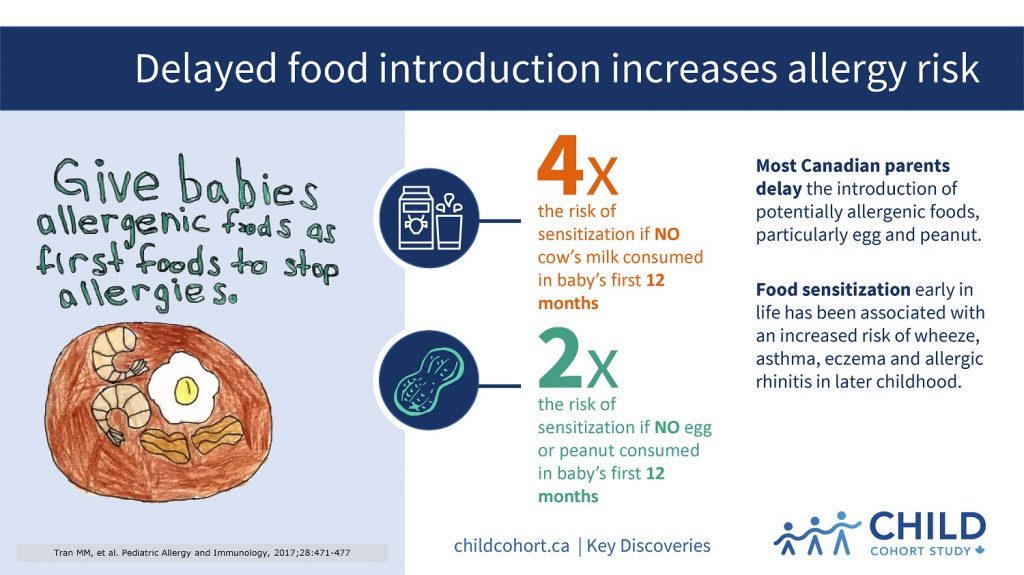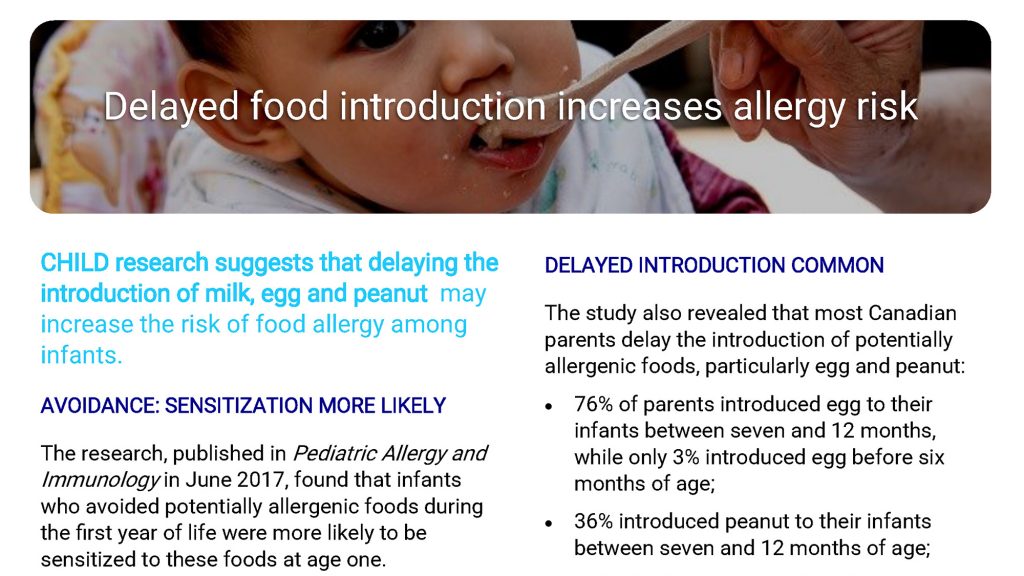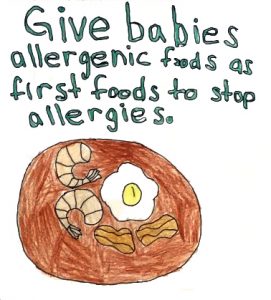Delayed food introduction increases allergy risk
CHILD research suggests that delaying the introduction of milk, egg and peanut may increase the risk of food allergy among infants.
AVOIDANCE: SENSITIZATION MORE LIKELY
The research, published in Pediatric Allergy and Immunology in June 2017, found that infants who avoided potentially allergenic foods during the first year of life were more likely to be sensitized to these foods at age one.
More specifically, infants who avoided cow’s milk products in the first year were nearly four times as likely to be sensitized to cow’s milk compared to infants who consumed cow’s milk products before 12 months of age.
Those who avoided egg or peanut in their first year were nearly twice as likely to be sensitized to those foods compared to infants who consumed them before 12 months of age.
Food sensitization early in life has been associated with an increased risk of wheeze, asthma, eczema and allergic rhinitis in later childhood.
DELAYED INTRODUCTION COMMON
The study also revealed that most Canadian parents delay the introduction of potentially allergenic foods, particularly egg and peanut:
- 76% of parents introduced egg to their infants between seven and 12 months, while only 3% introduced egg before six months of age;
- 36% introduced peanut to their infants between seven and 12 months of age;
- only 1% of parents introduced peanut before six months of age; and
- 63% of parents avoided feeding peanut entirely during the first year of life.







